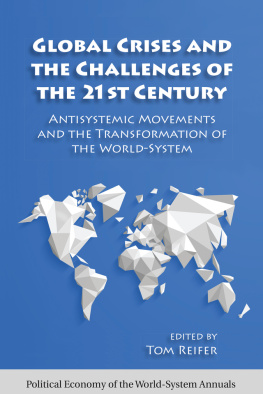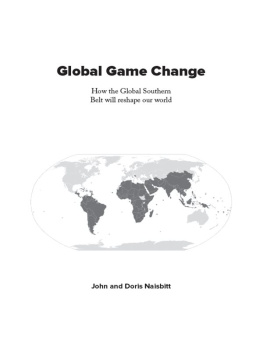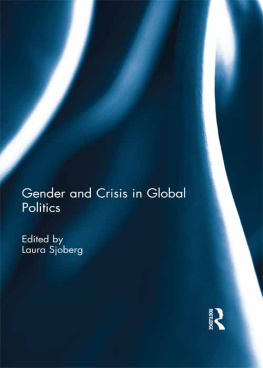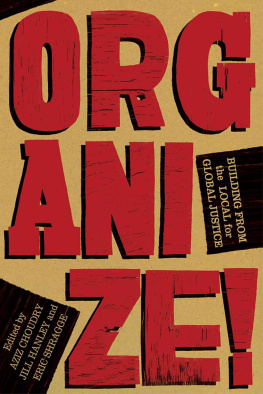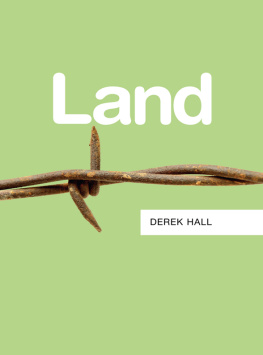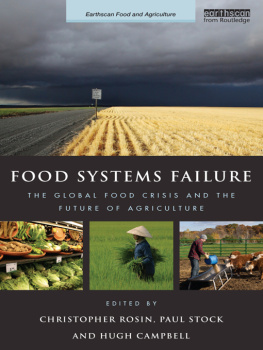First published 2014
by Paradigm Publishers
Published 2016
by Routledge
2 Park Square, Milton Park, Abingdon, Oxon OX14 4RN
711 Third Avenue, New York, NY 10017, USA
Routledge is an imprint of the Taylor & Francis Group, an informa business
Copyright 2014, Taylor & Francis.
All rights reserved. No part of this book may be reprinted or reproduced or utilised in any form or by any electronic, mechanical, or other means, now known or hereafter invented, including photocopying and recording, or in any information storage or retrieval system, without permission in writing from the publishers.
Notice:
Product or corporate names may be trademarks or registered trademarks, and are used only for identification and explanation without intent to infringe.
Library of Congress Cataloging-in-Publication Data
Global crises and the challenges of the 21st century: antisystemic movements and
the transformation of the world-system / edited by Tom Reifer.
p. cm.
ISBN 978-1-59451-919-2 (hardcover: alk. paper)
ISBN 978-1-59451-920-8 (paperback: alk. paper)
1. Global Financial Crisis, 2008-2009. 2. GlobalizationEconomic aspects.
I. Reifer, Tom.
HB37172008 G556 2012
330.9001'12dc23
2012007392
ISBN 13: 978-1-59451-919-2 (hbk)
ISBN 13: 978-1-59451-920-8 (pbk)
Designed and Typeset by Straight Creek Bookmakers
All the chapters of this book except one were originally presented at the Political Economy of the World-Systems Conference held at the University of San Diego, April 2325, 2009. Many people, departments, and organizations helped in making this event a great success. First off, I would like to thank USD Provost, Dr. Julie Sullivan, for generous financial support committed early on, without which the conference would have never taken place. Thanks also to the Ethnic Studies Department, Student Affairs, Carl Jubran, the International Center, and Dr. Dean Boyd, Chair of the College of Arts and Sciences. Most especially, I want to thank all of my colleagues in the Sociology Department who helped make me aware that I was part of a larger team, team USD. Thanks also to Ramon Grosfoguel and Immanuel Wallerstein for their usual sage advice about the organization of the conference. Thanks also to countless others at USD for their help, especially Denise Ward. Thanks also for invaluable editorial assistance to my lifelong friend Tom Dobrzeniecki.
The volume brings together state-of-the-art scholarship on todays global crises, antisystemic movements, and the challenges of the twenty-first century, from the varieties of contemporary globalization to social movements and regional efforts aiming to transform the system in more democratic, peaceful, and egalitarian directions. Topics explored include: comparative forms of white settler colonialism and decolonization; indigenous and racial, ethnical, class, national, and transnational struggles for peace and justice; and explorations from indigenous Native American perspectives of the role of violence and the sacred in the global system. Related civilizational themes that challenge the Eurocentric imaginary are also explored, from food, the sacred, and religion in the struggle of Latin farmworkers in the chapter The Tortilla Priest & the People of Corn, which focuses on struggles in the Southwest United States and religious battles over old and new world foods (wheat versus corn), to current battles over the role of the veil in the modern world-system. Since the conference from which this volume has come was originally held, the polarization of wealth and power in the world-system has given rise to the most sustained resurgence of antisystemic movements across the globe since 1968, whose continuation it represents as Immanuel Wallerstein has noted, first with the revolutionary wave that toppled one dictator after another in the Arab Spring, and then the development and global spread of the Occupy Wall Street movement, adding additional voices to those Europeans protesting massive waves of austerity throughout their Continent (see Reifer, 200910; 2/23/11; 2011).
The current movements remind one of Nobel Prizewinning economist Amartya Sens insights expressed in Development as Freedom (1999), where he explains that thousands of years ago Aristotle, in his Nicomachean Ethics, noted: wealth is evidently not the good we seek, for it is merely useful ... for the sake of something else. This line resonated strongly with a similar discussion between a husband and wife recounted in the Brihadaranyaka Upanishads around roughly the same time. Much of the rest of Sens book is devoted to noting the potential role of wealth and public investments in increasing human capability, going on to redefine poverty as capability deprivation.
Todays Occupy Wall Street protests continue this ancient discussion about the purposes of wealth, with its sloganwe are the 99%echoing too Aristotles famous distinction in his Politics about the conflict between oligarchy (rule of the rich) and democracy (the rule of the demos/the people), most of whom are without property, or poor. As Simon Johnson, former chief economist of the IMF, noted recently, the U.S. is unique ... just as we have the worlds most advanced economy, military and technology, we also have its most advanced oligarchy. The great moral philosopher and economist Adam Smith long ago critiqued what he called prodigals and prospectors, defined by the 1616 Shorter Oxford English Dictionary as a promoter of bubble companies; a speculator; a cheat, echoing todays anger at promoters of subprime mortgages and credit default swaps, the latter having grown from $631.5 billion of over $62 trillion in notional value between 2001 and 2007, expressed too in 2008 Republic Presidential candidate John McCains critique of the greed of Wall Street.
The statistics are compelling. In 2007, for example, the Congressional Budget Office (CBO) revealed that the increase in the incomes of the richest 1% of the US population from 20032005 came to $524.8 billion, a change of 42.6%, greater than the total combined income of the poorest 20% of Americans. Today, the top 1% of the income bracket in the United States has greater wealth than at any time since 1929, the eve of the Wall Street crash. The Great Depression was the end result of the speculative mania that characterized the roaring twenties, a decade eerily similar to the speculative housing bubble of the 2000s that culminated in the 2008 global financial crisis and the Great Recession. Moreover, a newly released CBO report reveals that average inflation-adjusted after-tax income of the top 1% of the US income bracket between 19792007 increased by 275 percent. At the same time, recently released figures reveal that US student loan debt has topped the $1 trillion mark. This is not surprising, given skyrocketing tuition costs combined with savage cuts to public education and programs supporting these struggling students.

